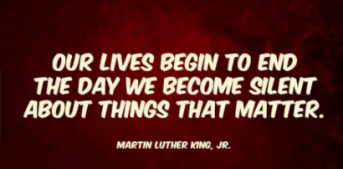Today and throughout February, I am posting brief excerpts from my upcoming memoir, “Coming Full Circle — From Jim Crow to Journalism.” This story is about my first job at The Washington Post, working nights and weekends with split days off alongside union production tradesmen in the composing room, not seated in the newsroom with the rest of my colleagues in journalism. I was 25 years old at the time.
I was four years out of college and a world away from a segregated upbringing in Savannah and the all-female black college I attended. Now I felt like I was out of my element, working exclusively with older white men who were used to yelling across the room and felt no qualms about telling off-color jokes.
Based on the increasingly boisterous behavior as the night wore on, I’m pretty sure alcohol was being consumed. I was not mature enough yet to ask why women or African American men were not invited to this white mens’ club, or to understand how unions were created for craftsmen who were only white and male. In some ways, this was much like the white male entitlement structure in the South where I grew up, where African Americans were locked out of certain jobs and careers, even African Americans with college degrees. I was taught, by example, to keep my head down and not to ask questions. Maybe this is why my grandmother encouraged me to take classes in education, so I would have the credentials to run and hide from what she surely knew was a world that might not be welcoming to a young black girl from the Deep South.
 I was beginning to understand this new world. I had to make it work. I knew God had given me an incredible gift — to be able to work at a newspaper like The Washington Post considering where I came from, a foundation of Jim Crow laws that constantly told me what I could or could not do.
I was beginning to understand this new world. I had to make it work. I knew God had given me an incredible gift — to be able to work at a newspaper like The Washington Post considering where I came from, a foundation of Jim Crow laws that constantly told me what I could or could not do.
I never regretted taking the job at The Post. Papers like The New York Times, The Wall Street Journal and The Post were pretty much every print journalist’s dream. I knew that. But I wasn’t working inside the newsroom and I missed being able to edit copy, write headlines and commiserate with reporters and other editors. I missed putting my stamp on stories on the front end before they landed in the pneumatic-tube life cycle of the daily newspaper. I missed the copy desk.
But then came a breaking point. A couple of months in at The Post I mustered the courage to walk into my supervising editor’s office to request a transfer to one of the newsroom’s copy desks. I reminded him that copy editing was my passion and experience and I wanted to work with some of the best editors in the business.
I never reported the uncomfortable conversations or the physical brushes by the union men in the composing men; I never let on that I was forced to be mindful of what I wore, where I stood and how I reacted to bad-boy behavior. I never reported the disparaging comments about women. In fact, in 1975 I’m pretty sure I was not even aware of the term “sexual harassment.” I just knew I was working in conditions that didn’t feel right.
Next: “What happened?”

Great post, Wanda. So proud of your work & determination! Tina
Sent from my iPhone
>
LikeLike